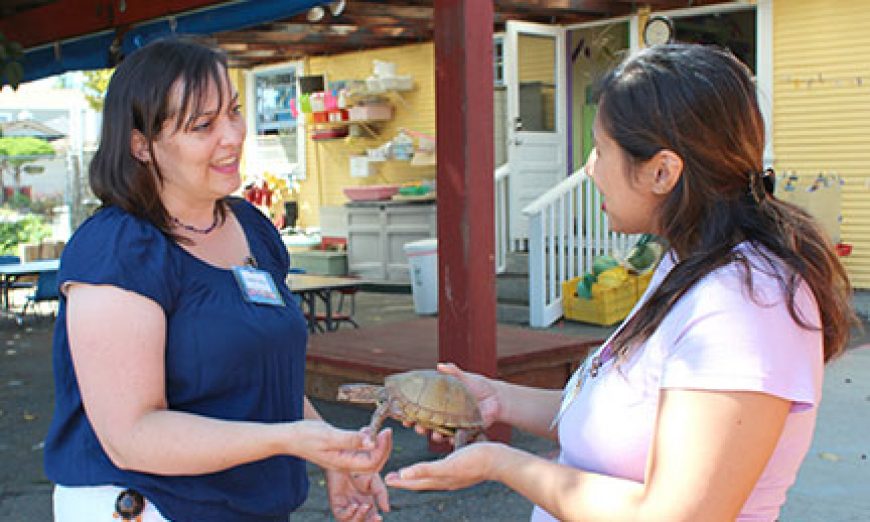Arriving at the dawn of a new school year, parents might need to meet with their children’s teachers sometime during the next nine months. These meetings could be regularly scheduled conferences at an elementary school or they might be special meetings requested by parents with middle schoolers or high schoolers. Four education professionals working in Santa Clara schools shared advice on how parents can prepare for these meetings.
Bob Ansaldo, a journalism teacher at Santa Clara High School, shared that he usually meets with parents when a student’s performance is unsatisfactory.
“As a parent going in, it’s important to have a conversation with the student about what the student’s perceptions are as to why they are making unsatisfactory marks,” Ansaldo said. “It’s also important to get a feeling of the teacher’s routines from the student as well. Some teachers may not have specific routines. If a student needs these routines, this is an opportunity for a parent to offer a suggestion. The meeting should be a great opportunity for everyone to come together not just to look at the issue but to look for a solution.”
Kristina Wilmot, a special education teacher at Braly Elementary School, explained that parents of special needs children have annual IEP (Individualized Education Program) meetings.
“We meet with the families once a year to review progress and to create new goals for the upcoming calendar year,” Wilmot said. “The big thing would be for parents to review the goals that their student is working on. They should think about the areas of concern they’d like to work on for the upcoming year. They should read ahead of time the updates and goals the teacher sends home. For some of the parents, it’s useful to look up the state standards to see what their child’s typical peers are working on in their grade level.”
Kelly Fregoso, a counselor at Peterson Middle School, encouraged parents to remain involved in their children’s education beyond elementary school.
“Sometimes parents think, they’re in middle school so the teacher and the school don’t want them as involved anymore and that’s not true,” Fregoso said. “I would encourage parents to ask their kids ‘how was school today, what did you learn, what homework did you have, show me what you learned, show me your planner, let me see.’ Student assignments are documented on our school web site. A way of being prepared for meetings and parent-teacher communication is for parents to see what work their child is missing.”
Marie Holley teaches at the Santa Clara Parents Nursery School (www.scpns.com, at 471 Monroe St.), a non-profit private school that is on property owned by the Santa Clara Unified School District.
“The purpose of the parent conference is [for parents and teachers] to get to know each other a little better and for the parent to let the teacher know if there’s anything going on that would affect the child at the school,” Holley said. “The teacher would also give the parent an idea of how the child is doing at school as far as making new friends, socializing, learning how to play cooperatively with other kids, and how they take direction from other adults at the school. So if there are stresses at home or if there has recently been a diagnosis or a suspicion of an upcoming diagnosis, such as ADHD or autism, it would be good to let the teacher know.”







